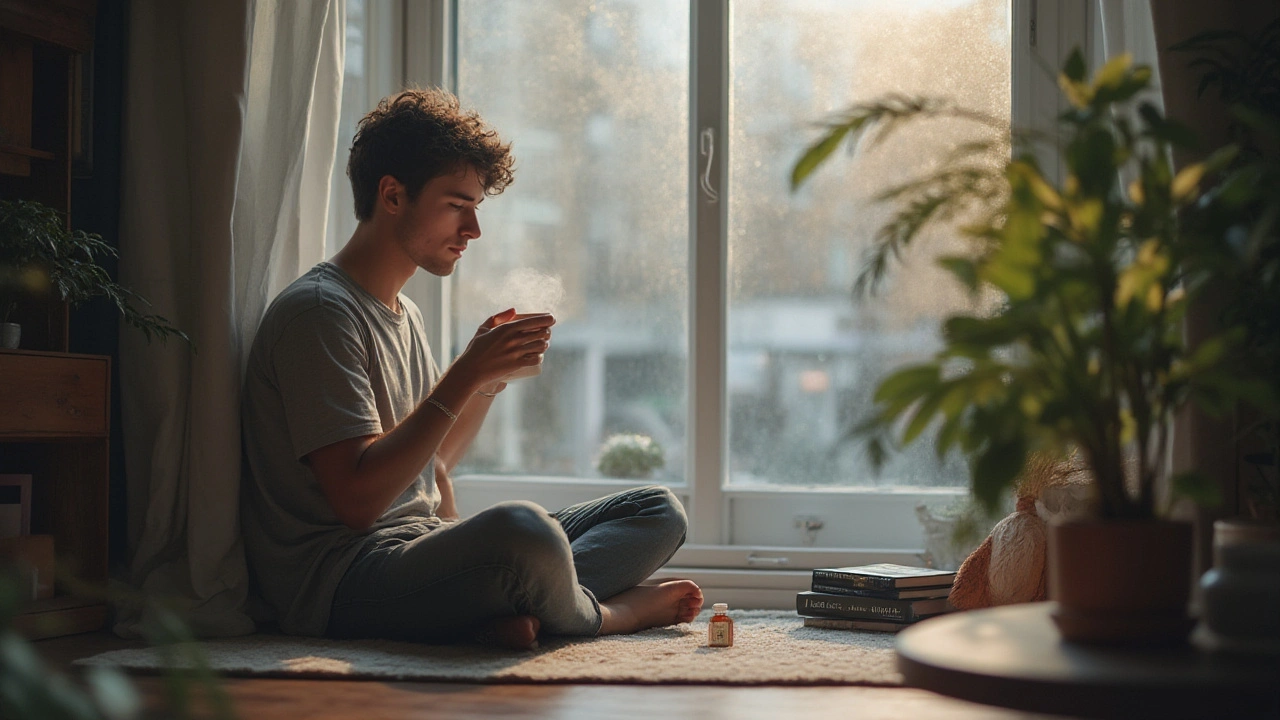
Natural Alternatives to Propranolol: Best Remedies for Performance Anxiety
Looking for natural ways to manage performance anxiety? Discover how L-theanine, mindfulness, and breathing can rival propranolol for calm and focus.
Propranolol is a beta-blocker people use for anxiety, tremor, migraine prevention, and high blood pressure. If you want a more natural approach, there are proven options that can help some of those problems. Important: don’t stop prescribed propranolol without talking to your doctor. Natural options can support symptoms, but severe cases often need medical treatment.
Pick an approach based on what you’re treating. For performance anxiety, different options help than for hypertension or migraine. Below I break down supplements, herbs, and practical habits that people actually use, with brief notes on evidence and safety.
Magnesium — widely used for muscle relaxation, tremor, and migraine prevention. Small trials show magnesium can reduce migraine frequency. Typical over-the-counter doses range 200–400 mg nightly (magnesium glycinate or citrate are common). Talk to your clinician if you have kidney problems.
Riboflavin (vitamin B2) and CoQ10 — both have evidence for migraine prevention. Riboflavin is commonly used at 400 mg daily and CoQ10 at 100–300 mg daily in studies. They take weeks to show effect.
L-theanine — an amino acid from green tea that calms nerves without sedation. People use 100–200 mg before public speaking or stressful events. It’s fast-acting for situational anxiety.
Ashwagandha and Rhodiola — adaptogens some people use for chronic anxiety and stress. Typical extracts are in the 250–500 mg daily range. Evidence is mixed but several small trials report reduced anxiety scores.
Valerian and passionflower — useful for mild anxiety and sleep problems. Valerian 300–600 mg before bed may help sleep, which indirectly reduces daytime anxiety. Kava is effective for anxiety but has rare liver risk — don’t mix with alcohol or liver-harming drugs.
Hibiscus and garlic — modest effects on blood pressure. Hibiscus tea (1–2 cups daily) has shown small BP drops in trials. Garlic supplements can also reduce systolic BP slightly. These are not replacements for hypertension meds if BP is high.
Breathing and biofeedback — slow diaphragmatic breathing, box breathing, and biofeedback lower heart rate and reduce panic symptoms fast. Practice 10 minutes daily.
Regular aerobic exercise — improves anxiety, reduces resting heart rate, and lowers blood pressure over time. Aim for 30 minutes most days.
Cut caffeine and stimulants — caffeine can mimic or worsen symptoms propranolol treats. Try reducing intake and note changes.
Sleep, weight, and diet — aim for consistent sleep, a DASH-style diet high in fruits and veggies, and weight loss if needed; all lower blood pressure and improve symptoms.
How to try these safely: pick one change at a time, keep a symptom diary for 4–8 weeks, and review results with your clinician. If you have heart disease, severe hypertension, or frequent migraines, work with your doctor before replacing or stopping medication.
Quick checklist: consult clinician, start magnesium or L-theanine, try breathing, track BP and symptoms, don't stop meds. Small steps can add up — combined approaches often work better than single fixes. Be patient and review progress every month with your provider regularly.

Looking for natural ways to manage performance anxiety? Discover how L-theanine, mindfulness, and breathing can rival propranolol for calm and focus.